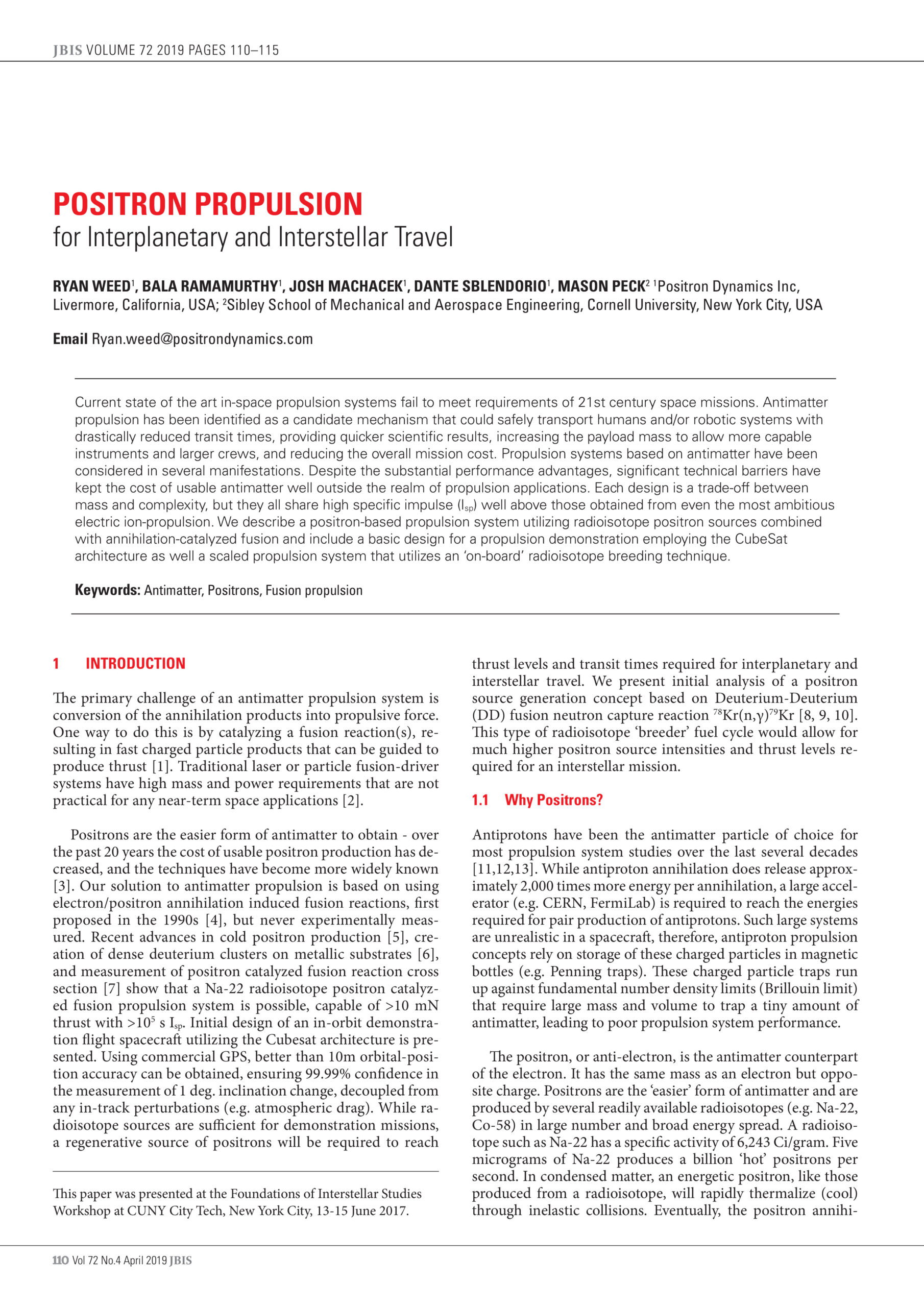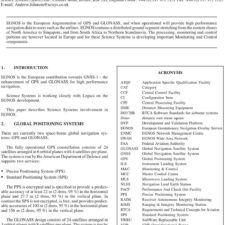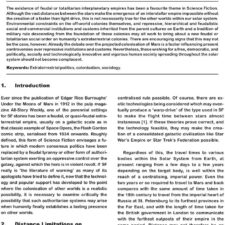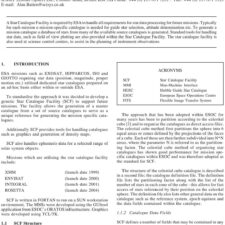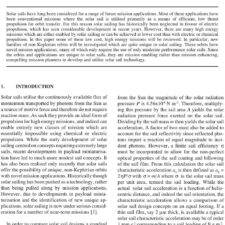Positron propulsion for Interplanetary and Interstellar Travel
£5.00
R. Weed et al. (2019), JBIS, 72, pp.110-115
Refcode: 2019.72.110
Abstract:
Current state of the art in-space propulsion systems fail to meet requirements of 21st century space missions. Antimatter propulsion has been identified as a candidate mechanism that could safely transport humans and/or robotic systems with drastically reduced transit times, providing quicker scientific results, increasing the payload mass to allow more capable instruments and larger crews, and reducing the overall mission cost. Propulsion systems based on antimatter have been considered in several manifestations. Despite the substantial performance advantages, significant technical barriers have kept the cost of usable antimatter well outside the realm of propulsion applications. Each design is a trade-off between mass and complexity, but they all share high specific impulse (Isp) well above those obtained from even the most ambitious electric ion-propulsion. We describe a positron-based propulsion system utilizing radioisotope positron sources combined with annihilation-catalyzed fusion and include a basic design for a propulsion demonstration employing the CubeSat architecture as well a scaled propulsion system that utilizes an ‘on-board’ radioisotope breeding technique.

